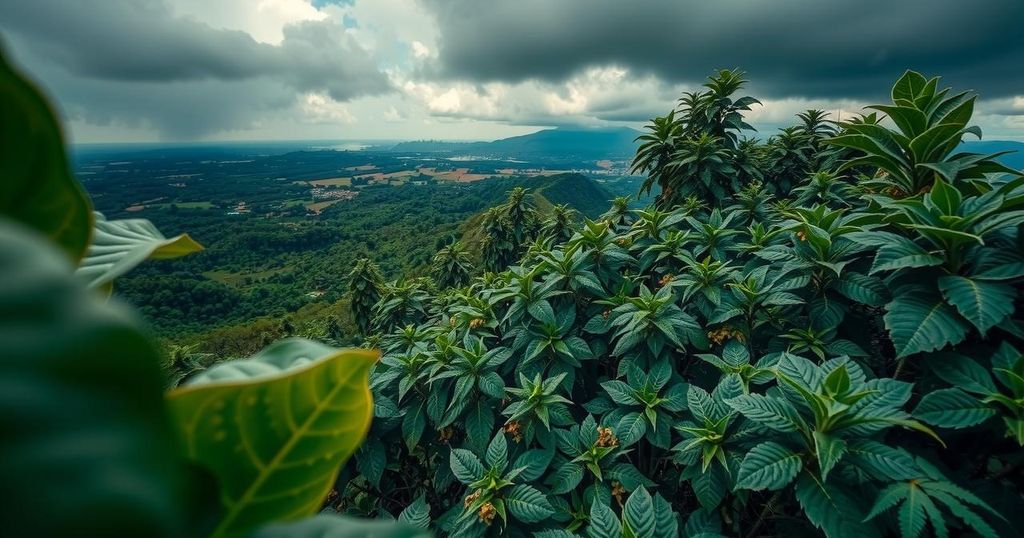On October 14, 2023, ICC prosecutor Karim A. A. Khan announced intensified investigations in the Democratic Republic of Congo, particularly focusing on crimes in North Kivu since January 2022—a response to the Congolese government’s request. The ICC has been examining serious crimes in the DRC since 2004, but the ongoing lack of accountability for abuses, particularly by military and government officials, necessitates a renewed focus. As systemic violations continue, the ICC emphasizes inclusivity in its investigations while welcoming the Congolese effort to establish a special court to enhance justice mechanisms.
On October 14, 2023, the International Criminal Court (ICC) prosecutor, Mr. Karim A. A. Khan, made a significant announcement regarding an escalation of investigative activities in the Democratic Republic of Congo (DRC). This initiative will specifically target crimes occurring in the North Kivu province since January 2022, a move spurred by a formal request from the Congolese government made in the previous year. The ICC has been involved in investigating serious crimes in the DRC since 2004, following the government’s initial appeal to the court. This ongoing investigation has led to cases against six suspects, primarily former leaders of armed groups. Notably, four individuals were prosecuted for crimes committed in Ituri province between 2002 and 2003, resulting in three convictions and one acquittal. Conversely, the other two cases related to crimes in North Kivu from 2009 did not progress to trial. Human Rights Watch has consistently urged the ICC to address not only the actions of rebel commanders, which have led to significant abuses, but also to scrutinize the alleged crimes perpetrated by high-ranking government and military officials from Congo, Rwanda, and Uganda. The renewed investigative focus presents an opportunity to confront the endemic lack of accountability that perpetuates the cycle of impunity fueling grave human rights abuses in both North Kivu and Ituri. Systematic violations of war laws continue in the DRC, with Human Rights Watch documenting atrocities committed by the M23 armed group, including the massacre of civilians, incidents of gang rape, widespread looting, and destruction of property. Reports indicate that in 2024, the Rwandan army and M23 forces launched indiscriminate shelling on displacement camps and other densely populated areas near Goma in North Kivu. Furthermore, the deployment of heavy artillery by the Congolese military and allied forces has significantly heightened the risks faced by vulnerable displaced populations. Documented cases of murder, sexual violence, and arbitrary detentions perpetrated by Congolese soldiers and their allied militias accentuate the urgent need for accountability. Mr. Khan has assured that his investigations will encompass all warring factions, despite the Congolese government advocating a focus only on the M23 group. It is essential for ICC member states to recognize the expanding scope of the court’s responsibilities and to provide requisite support for the ICC to effectively carry out its mission across all cases. However, the ICC is fundamentally a court of last resort and cannot be expected to undertake all responsibilities independently. Mr. Khan’s remarks welcomed the Congolese authorities’ initiative to establish a committee aimed at founding a special criminal court for the DRC. The establishment of an internationalized judicial framework that complements both the ICC’s work and domestic courts is critically needed and overdue, potentially aiding in bridging the existing impunity gap. Therefore, it is imperative that the Congolese government expedites this initiative with the collaboration of the ICC and other international partners.
The International Criminal Court (ICC) has been engaged in the Democratic Republic of Congo (DRC) since 2004, responding to a request from the DRC government to investigate serious crimes perpetrated within its borders. The court’s ongoing investigations have produced a number of indictments against individuals from various armed groups as well as prosecution efforts focused on severe human rights violations. As regional instability continues to result in widespread abuses, the ICC’s efforts are seen as a critical mechanism for accountability. Recent events, specifically in North Kivu, underscore the urgent need for the ICC to broaden its investigations to include high-ranking officials from not only the DRC but also potential co-perpetrators from neighboring countries. This ongoing violence highlights a significant impunity gap that exacerbates conflicts and impacts civilian safety.
The announcement by the ICC prosecutor regarding intensified investigations in North Kivu represents a vital advancement in the pursuit of justice within the DRC. By addressing not only the actions of armed groups like the M23 but also the complicity of senior government officials, the ICC can potentially contribute to overcoming the entrenched impunity that fuels ongoing atrocities. A collaborative approach involving the establishment of a special criminal court is essential for fostering accountability and ensuring that justice can be realized for victims of human rights violations in the DRC. The engagement of the international community will be crucial in supporting these initiatives, ensuring that the objectives of the ICC and the Congolese government are met effectively.
Original Source: www.hrw.org






